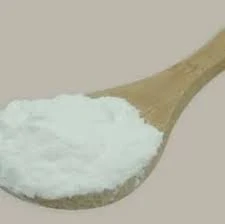Cooling Tower Water Treatment Chemicals Ensuring Efficiency and Longevity
Cooling towers play a crucial role in numerous industrial processes by dissipating excess heat from equipment or buildings. As vital components of cooling systems, their performance directly influences operational efficiency and cost-effectiveness. However, without proper maintenance and attention, cooling towers can become breeding grounds for bacteria, scale, and corrosion, ultimately leading to inefficient operation and higher energy costs. This is where cooling tower water treatment chemicals come into play.
The Importance of Water Treatment
Cooling towers operate by circulating water to absorb heat, which is then expelled into the atmosphere. As the water circulates, it can become contaminated with various impurities such as minerals, bacteria, and organic materials. If left untreated, these contaminants can lead to scaling, biofilm formation, and corrosion. Scaling, for instance, occurs when minerals like calcium and magnesium precipitate out of the water, forming unwanted deposits on heat exchange surfaces. This not only reduces the efficiency of the cooling system but can also lead to expensive repairs and downtime.
To prevent these issues, water treatment chemicals are essential. They serve multiple functions, including preventing scaling, controlling corrosion, and eliminating biological contaminants. By maintaining water quality, these chemicals ensure that cooling towers operate at optimal performance levels, which can significantly reduce energy consumption and extend the lifespan of equipment.
Key Types of Cooling Tower Water Treatment Chemicals
1. Scale Inhibitors Scale inhibitors, such as phosphonates and polyacrylic acids, are widely used to prevent mineral buildup in cooling systems. These compounds work by interfering with the crystallization of scale-forming minerals, allowing them to remain suspended in the water. This prevents deposits from forming on heat exchange surfaces, ensuring efficient heat transfer and reducing the risk of system failures.
cooling tower water treatment chemicals

2. Corrosion Inhibitors Corrosion inhibitors are chemicals that protect metal surfaces in cooling systems from oxidation and degradation. Common inhibitors include nitrites, molybdates, and phosphates. By creating a protective film on metal surfaces, these chemicals minimize the risks of corrosion, which can lead to leaks, equipment failure, and costly repairs.
3. Biocides Biocides are crucial for controlling the growth of bacteria, algae, and other microorganisms in cooling water. The presence of these organisms can lead to biofilm formation, which not only affects heat transfer efficiency but can also pose health risks, such as the proliferation of Legionella bacteria. Common biocides include chlorine, bromine, and non-oxidizing agents like isothiazolinones. Regular biocide treatment helps maintain water quality and ensures a safe operating environment.
4. Water Conditioners Water conditioners are additives that enhance the effectiveness of other treatment chemicals. They help to improve water clarity and reduce overall impurities, optimizing the efficacy of scale inhibitors and biocides. Examples of water conditioners include chelating agents and dispersants, which aid in controlling sediment and ensuring a more stable cooling process.
The Role of Water Testing
Implementing a successful cooling tower water treatment program requires regular water testing and analysis. Monitoring key parameters such as pH, conductivity, and the concentrations of treatment chemicals allows operators to make informed decisions about dosage and ensure optimal performance. Many facilities opt for automated water monitoring systems that provide real-time data, enabling swift adjustments to treatment protocols as needed.
Conclusion
In conclusion, cooling tower water treatment chemicals are indispensable for maintaining the efficiency, safety, and longevity of cooling systems. Through the proper application of scale inhibitors, corrosion inhibitors, biocides, and water conditioners, facility operators can prevent costly issues, enhance energy efficiency, and ensure compliance with health and safety standards. Regular monitoring and testing further optimize treatment programs, leading to sustained operational performance. As industries continue to emphasize sustainability and efficiency, effective water treatment will remain a cornerstone of cooling tower management.

